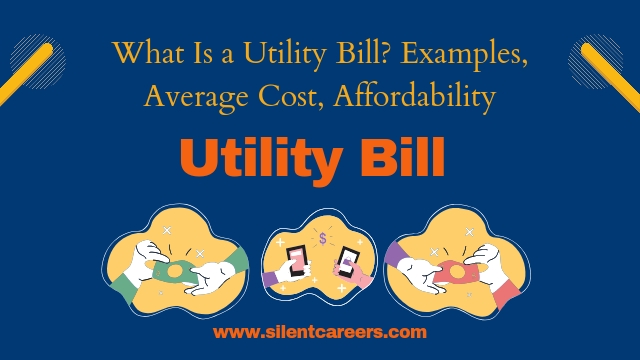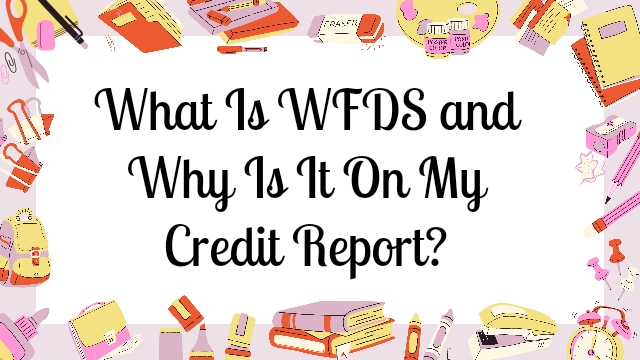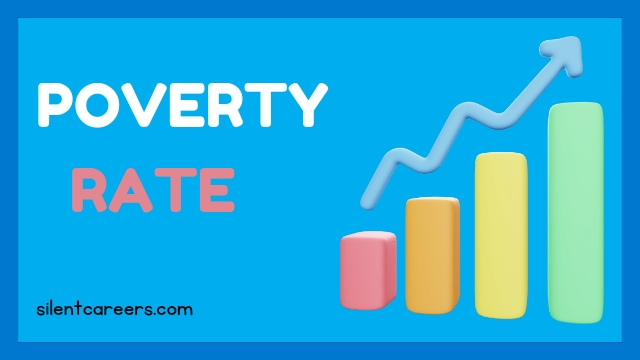
A credit-builder loan helps improve your credit score by holding the loan amount in a secured account while you make monthly payments. These payments are reported to credit bureaus, building a positive credit history. Upon completion, you receive the loan amount, boosting your credit and demonstrating financial responsibility.

What Is a Credit-Builder Loan?
A credit-builder loan is a type of loan designed to help individuals build or improve their credit score. Unlike traditional loans, the borrower doesn’t receive the loan amount upfront. Instead, the funds are held in a secured account while the borrower makes fixed monthly payments. Once the loan term is completed, the borrower receives the full amount of the loan, and the lender reports the payment history to the credit bureaus, potentially boosting the borrower’s credit score.
How Does a Credit-Builder Loan Work?
Loan Amount:
- Typically, the loan amounts are small, ranging from $300 to $1,000.
Secured Savings Account:
- When you take out a credit-builder loan, the amount you borrow is held in a secure account by the lender. You do not receive the money upfront.
Monthly Payments:
- You make fixed monthly payments over a set period, usually 6 to 24 months. These payments include both principal and interest.
Reporting to Credit Bureaus:
- The lender reports your payment history to the major credit bureaus (Equifax, Experian, and TransUnion). On-time payments help build a positive credit history.
Access to Funds:
- Once you’ve made all the payments, you receive the full loan amount (minus any interest and fees). This acts as a form of forced savings.
Read more: How to Build Credit: Tips and Tricks for a Better Credit Score
Benefits of Credit-Builder Loans
- Improving Credit Score: Regular, on-time payments can significantly boost your credit score.
- Establishing Credit History: For those with no or limited credit history, it provides a way to establish credit.
- Savings Component: At the end of the loan term, you’ll have a lump sum of money that can be used for emergencies, further boosting your financial health.
Considerations
- Interest and Fees: Be aware of the interest rate and any fees associated with the loan. Compare different lenders to find the best terms.
- Commitment: You need to commit to making regular payments. Missing payments can harm your credit score.
- Alternatives: Other ways to build credit include secured credit cards, becoming an authorized user on someone else’s credit card, or using rent-reporting services.
Who Should Consider a Credit-Builder Loan?
- Credit Newcomers: Individuals with no credit history looking to establish credit.
- Credit Rebuilders: Those with poor credit looking to improve their credit score.
- Savings-Minded Individuals: Those who want a structured way to save money while building credit.
Credit-builder loans can be an effective tool for improving your financial health, especially when combined with other responsible credit behaviors.
How to Get a Credit-Builder Loan
To get a credit-builder loan, follow these steps:
- Research Lenders: Look for financial institutions that offer credit-builder loans. These can include credit unions, community banks, and online lenders.
- Check Eligibility Requirements: Each lender may have different eligibility criteria. Make sure you meet these requirements before applying.
- Compare Loan Terms: Compare the terms, interest rates, fees, and repayment schedules of different lenders to find the best option for you.
- Apply for the Loan: Complete the application process, which may include providing personal information, proof of income, and consent for a credit check.
- Make Regular Payments: Once approved, make timely monthly payments as agreed. These payments will be reported to the credit bureaus.
- Monitor Your Credit Score: Regularly check your credit report to ensure that your payments are being reported accurately and to track your credit score improvement.
- Receive Loan Funds: At the end of the loan term, the lender releases the loan amount to you, provided all payments have been made successfully.
How Can a Credit-Builder Loan Help My Credit?
A credit-builder loan can help improve your credit score in several ways:
- Establishes Payment History: Timely payments on the loan are reported to credit bureaus, helping to build a positive payment history, which is a significant factor in credit scoring.
- Builds Credit Mix: Having different types of credit (e.g., installment loans like a credit-builder loan and revolving credit like credit cards) can positively impact your credit score.
- Demonstrates Financial Responsibility: Successfully managing a credit-builder loan shows lenders that you can handle debt responsibly, making you a more attractive borrower in the future.
- Creates a Credit Record: For those with little to no credit history, a credit-builder loan provides a starting point for building credit.
- Reduces Credit Utilization: Although not directly, by improving your overall credit profile, it can help reduce the perceived risk by lenders, indirectly benefiting your credit utilization ratio.
Additional Ways to Improve Your Credit Scores
In addition to using a credit-builder loan, here are some additional ways to improve your credit scores:
- Pay Bills on Time: Consistently paying all your bills on time is one of the most important factors in building a good credit score.
- Reduce Debt: Work on paying down existing debt, especially high-interest credit card debt, to lower your credit utilization ratio.
- Keep Credit Card Balances Low: Aim to use less than 30% of your available credit limit on each credit card to maintain a healthy credit utilization rate.
- Avoid Opening Too Many New Accounts: Each new credit inquiry can temporarily lower your credit score. Only apply for new credit when necessary.
- Maintain Old Accounts: Keeping older accounts open can help lengthen your credit history, which positively affects your score.
- Regularly Check Credit Reports: Review your credit reports for errors or inaccuracies and dispute any incorrect information with the credit bureaus.
- Become an Authorized User: Ask a family member or friend with good credit to add you as an authorized user on their credit card account. This can help you benefit from their positive credit history.
- Diversify Credit Types: Having a mix of credit accounts, such as credit cards, installment loans, and retail accounts, can improve your credit score by showing you can handle different types of credit responsibly.
- Set Up Payment Reminders: Use reminders or automatic payments to ensure you never miss a payment deadline.
- Use Secured Credit Cards: If you have trouble qualifying for traditional credit cards, a secured credit card can help you build or rebuild your credit. Make sure the issuer reports to all three major credit bureaus.
How Much Will A Credit Builder Loan Raise My Credit Score?
The exact amount a credit-builder loan will raise your credit score depends on several factors, including your current credit situation, the terms of the loan, and your financial behavior during the loan term. Here are some key points to consider:
- Starting Credit Score: If you have a very low credit score or no credit history, the potential for improvement may be more significant compared to someone with an already established credit history.
- Payment History: Making consistent, on-time payments throughout the loan term will have a positive impact on your credit score. Payment history accounts for 35% of your FICO score.
- Credit Mix: Adding an installment loan like a credit-builder loan to your credit profile can improve your credit mix, which accounts for 10% of your FICO score.
- Loan Term and Amount: The duration and amount of the loan can also influence the impact on your credit score. Typically, longer-term loans might have a more prolonged effect on your credit history.
- Overall Financial Behavior: The impact of a credit-builder loan will also depend on your overall financial behavior, including managing other credit accounts, keeping credit card balances low, and avoiding new credit inquiries.
While it’s difficult to predict an exact score increase, many people see their credit scores improve by 20 to 75 points within six months to a year of using a credit-builder loan effectively. For the most accurate prediction, consider discussing your specific situation with a financial advisor or credit counselor.
Why Credit Score Is Important?
A good credit score is important for several reasons:
- Loan and Credit Card Approval: Lenders use credit scores to evaluate the risk of lending money. A higher credit score increases the likelihood of getting approved for loans and credit cards.
- Interest Rates: Better credit scores typically qualify for lower interest rates on loans and credit cards, saving you money over time.
- Credit Limits: A higher credit score can lead to higher credit limits on credit cards and lines of credit.
- Rental Applications: Landlords often check credit scores to assess the reliability of potential tenants. A good score can help secure rental housing.
- Insurance Premiums: Some insurance companies use credit scores to determine premiums for auto, home, and other types of insurance. Higher scores can result in lower premiums.
- Employment Opportunities: Some employers check credit scores as part of the hiring process, particularly for positions that require financial responsibility.
- Utility Services: Utility companies may check credit scores before setting up services. A higher score can avoid the need for security deposits.
- Security Deposits: A good credit score can reduce or eliminate the need for security deposits when setting up services or renting property.
- Financial Flexibility: A good credit score provides more financial options and flexibility, allowing you to make significant purchases and investments more easily.
- Peace of Mind: Maintaining a good credit score can provide peace of mind, knowing that you have access to financial resources when needed and are in good standing with creditors.
Where Can You Get a Credit Builder Loan?
You can get a credit-builder loan from various financial institutions and online lenders. Here are some options:
- Credit Unions: Many credit unions offer credit-builder loans to their members. Credit unions often have favorable terms and lower fees compared to traditional banks.
- Community Banks: Local community banks may provide credit-builder loans as part of their commitment to supporting the financial health of their communities.
- Online Lenders: Several online lenders specialize in credit-builder loans. These platforms often provide a quick and easy application process.
- Community Development Financial Institutions (CDFIs): CDFIs focus on providing financial services to underserved communities. They often offer credit-builder loans to help individuals improve their credit scores.
- Nonprofit Organizations: Some nonprofits offer credit-builder loans as part of their financial education and assistance programs. These organizations may also provide additional resources for managing finances and improving credit.
- Lending Circles: Some communities and organizations have lending circles, where groups of people contribute to a pool of money and take turns borrowing from it. These can function similarly to credit-builder loans and help improve credit.
- Secured Credit Cards: While not exactly the same as a credit-builder loan, secured credit cards can also help build credit. They require a cash deposit as collateral, and your payments are reported to the credit bureaus.
- Microfinance Institutions: These institutions provide financial services to low-income individuals or those without access to traditional banking services, often including credit-builder loans.
When looking for a credit-builder loan, compare the terms, interest rates, and fees of different providers to find the best option for your needs.
How to Manage a Credit Builder Loan
Managing a credit-builder loan effectively is crucial to improving your credit score. Here are some steps to help you manage it successfully:
- Understand the Terms: Before taking out the loan, make sure you fully understand the terms, including the interest rate, monthly payment amount, loan duration, and any fees.
- Create a Budget: Incorporate your loan payments into your monthly budget to ensure you can make payments on time without financial strain.
- Set Up Automatic Payments: To avoid missing payments, set up automatic payments from your bank account. This ensures timely payments and helps build a positive payment history.
- Track Your Payments: Keep a record of your payments and monitor your loan account regularly to ensure payments are being processed correctly.
- Make Payments On Time: Timely payments are crucial for building your credit score. Late payments can negatively impact your credit.
- Communicate with Your Lender: If you encounter financial difficulties and cannot make a payment, contact your lender immediately to discuss options. They may offer solutions like a temporary payment plan.
- Monitor Your Credit Report: Regularly check your credit report to ensure that your payments are being reported accurately to the credit bureaus. You can get free credit reports from AnnualCreditReport.com.
- Avoid New Debt: While managing your credit-builder loan, avoid taking on additional debt that could strain your finances and affect your ability to make timely payments.
- Plan for the Loan Term: Understand when your loan will be fully paid off and what happens to the funds at that time. Some lenders release the funds to you, which can be used to further your financial goals.
- Use the Experience: Use the positive experience and improved credit score to apply for other types of credit responsibly, such as a traditional credit card or a small personal loan, to continue building your credit profile.
By following these steps, you can effectively manage your credit-builder loan and maximize its benefits for your credit score.
How Much Does a Credit Builder Loan Cost?
The cost of a credit-builder loan can vary depending on several factors, including the lender, the loan amount, and the loan term. Here are some common costs associated with credit-builder loans:
- Interest Rates: Credit-builder loans typically have low-interest rates, but the exact rate will vary by lender and your credit profile. Rates can range from a few percent to around 15%, depending on the lender and your risk profile.
- Fees: Some lenders may charge application fees, origination fees, or account maintenance fees. Be sure to check for any additional costs that might be associated with the loan.
- Loan Amount: Credit-builder loans usually range from a few hundred to a few thousand dollars. The cost of the loan will depend on the amount you borrow and the interest rate applied.
- Monthly Payments: Your monthly payment amount will be based on the loan amount, interest rate, and term. The payments should fit within your budget to ensure timely payment and avoid late fees.
- Total Loan Cost: The total cost of the loan includes the principal amount borrowed plus the interest and any fees. Make sure to calculate the total cost over the life of the loan to understand the full financial impact.
To minimize costs, compare different lenders and loan offers. Look for loans with low fees, competitive interest rates, and favorable terms. Always read the loan agreement carefully to understand all associated costs before committing.
Can credit builder loans hurt my credit?
While credit-builder loans are generally designed to improve your credit, there are situations where they could potentially hurt your credit if not managed properly:
- Late Payments: If you miss or make late payments on a credit-builder loan, it can negatively affect your credit score. Payment history is a major factor in your credit score, and late payments can be reported to credit bureaus.
- High Fees: Some credit-builder loans may have high fees, which could make it difficult to keep up with payments. Ensure you understand all fees associated with the loan and choose one that fits your budget.
- Overextending Yourself: If taking on a credit-builder loan leads to financial strain and causes you to miss other financial obligations, it could harm your credit. It’s important to ensure you can comfortably manage the loan payments alongside your other expenses.
- Hard Inquiries: Applying for a credit-builder loan may involve a hard inquiry on your credit report. While a single hard inquiry typically has a small impact, multiple inquiries within a short period can slightly lower your score.
- Managing Multiple Loans: If you have multiple credit-builder loans or other types of debt, managing all of them responsibly is crucial. Mismanagement of any credit accounts can negatively impact your credit score.
To avoid these potential issues:
- Make Timely Payments: Ensure you make all payments on time to build a positive payment history.
- Understand Fees: Be aware of any fees associated with the loan and ensure they fit within your budget.
- Monitor Your Credit: Regularly check your credit report to ensure that your payments are reported accurately and to track your progress.
- Avoid Overextending: Only take on loans or credit that you can comfortably manage without compromising other financial obligations.
Where to find a credit builder loan
You can find a credit-builder loan from several types of financial institutions and organizations. Here are some places to look:
- Credit Unions: Many credit unions offer credit-builder loans to their members. Check with local credit unions to see if they provide this type of loan.
- Community Banks: Some community banks offer credit-builder loans as part of their services. Contact local banks to inquire about their offerings.
- Online Lenders: Various online lenders specialize in credit-builder loans. They often have a streamlined application process and can provide quick approval.
- Community Development Financial Institutions (CDFIs): CDFIs focus on serving underserved communities and may offer credit-builder loans. Look for CDFIs in your area.
- Nonprofit Organizations: Some nonprofits offer credit-builder loans as part of their financial education and assistance programs. Organizations like the Credit Builders Alliance provide resources and loan options.
- Lending Circles: In some communities, lending circles are organized where members contribute to a pool of money and take turns borrowing from it. These can function similarly to credit-builder loans.
- Secured Credit Card Providers: While not exactly the same, secured credit cards can also help build credit. Check with issuers that report to all three major credit bureaus.
- Microfinance Institutions: These institutions provide financial services to low-income individuals and may offer credit-builder loans. Research microfinance options in your area.
When looking for a credit-builder loan, compare terms, interest rates, fees, and the reputation of the lender to ensure you choose the best option for your needs.
Looking for a credit builder loan?
If you’re looking for a credit-builder loan, here are some steps to help you find and secure one:
- Research Lenders: Start by researching various types of lenders, including credit unions, community banks, online lenders, and nonprofit organizations. Compare their credit-builder loan offerings, terms, and interest rates.
- Check with Credit Unions: Many credit unions offer credit-builder loans. Visit their websites or contact them directly to inquire about their loan products.
- Explore Community Banks: Local community banks might have credit-builder loan options. Visit their branches or websites for more information.
- Browse Online Lenders: Search for online lenders that specialize in credit-builder loans. Platforms like Self, CreditStrong, and others provide these loans with a simple online application process.
- Look into CDFIs: Community Development Financial Institutions (CDFIs) may offer credit-builder loans. Use the CDFI Fund’s website to find local institutions.
- Contact Nonprofit Organizations: Reach out to nonprofit organizations that focus on financial education and assistance. They may offer credit-builder loans or be able to direct you to appropriate resources.
- Check Lending Circles: Research if there are any lending circles in your community that offer credit-building opportunities.
- Evaluate Secured Credit Cards: If a credit-builder loan isn’t available, consider a secured credit card. Ensure it reports to all three major credit bureaus to help build your credit.
- Compare Terms and Fees: For any loan or credit-building option, carefully compare the terms, interest rates, fees, and payment schedules.
- Apply for the Loan: Once you find a suitable option, complete the application process. Be prepared to provide personal information, proof of income, and possibly a security deposit or other documentation.
By following these steps, you can find a credit-builder loan that fits your needs and helps improve your credit score.








